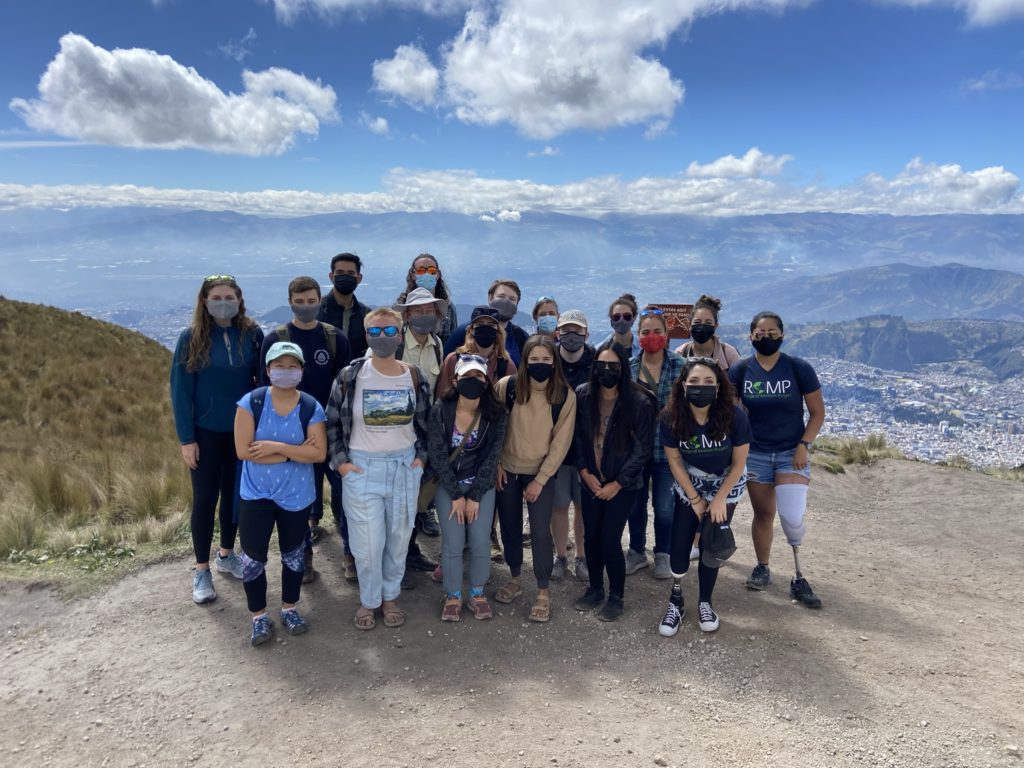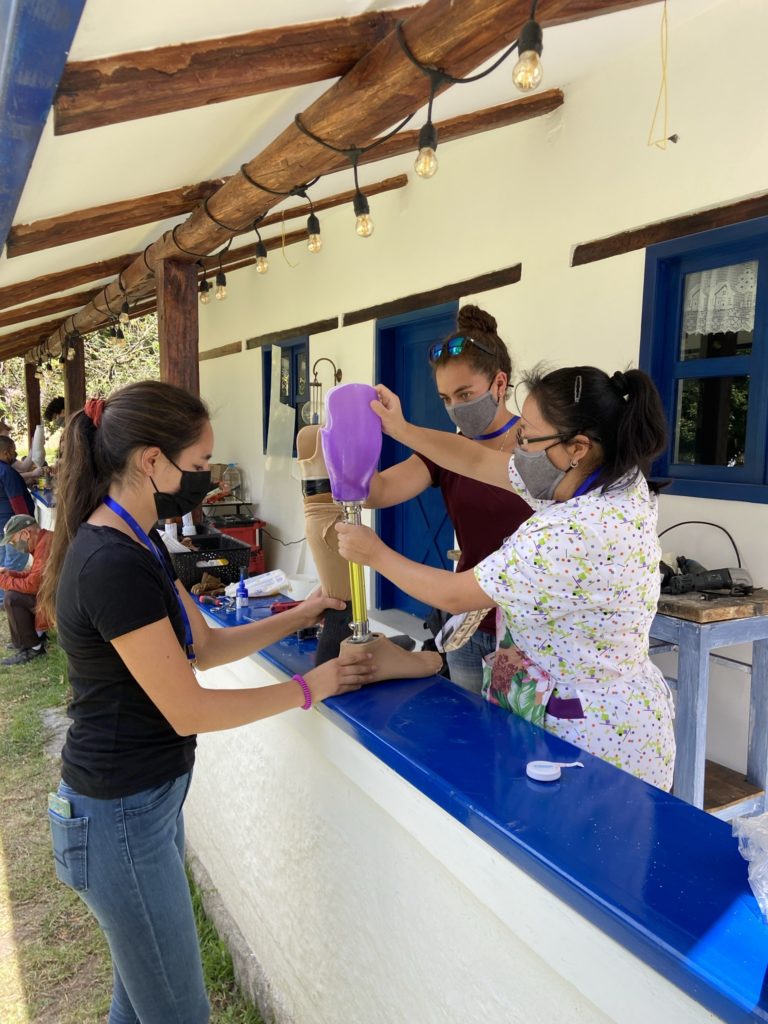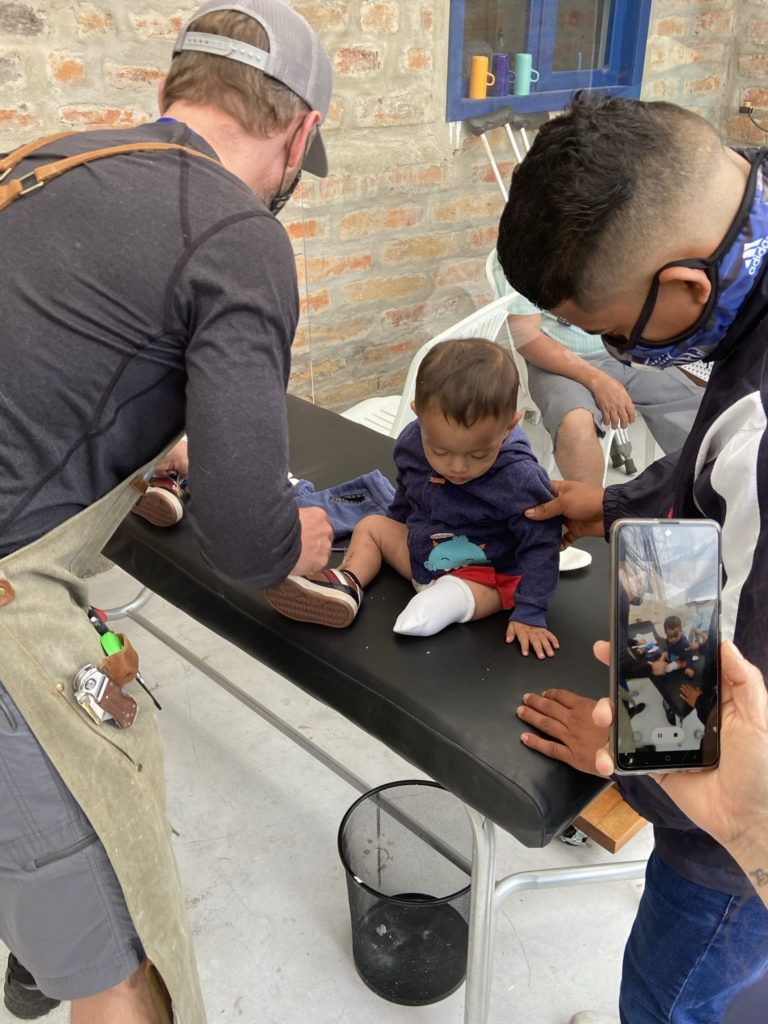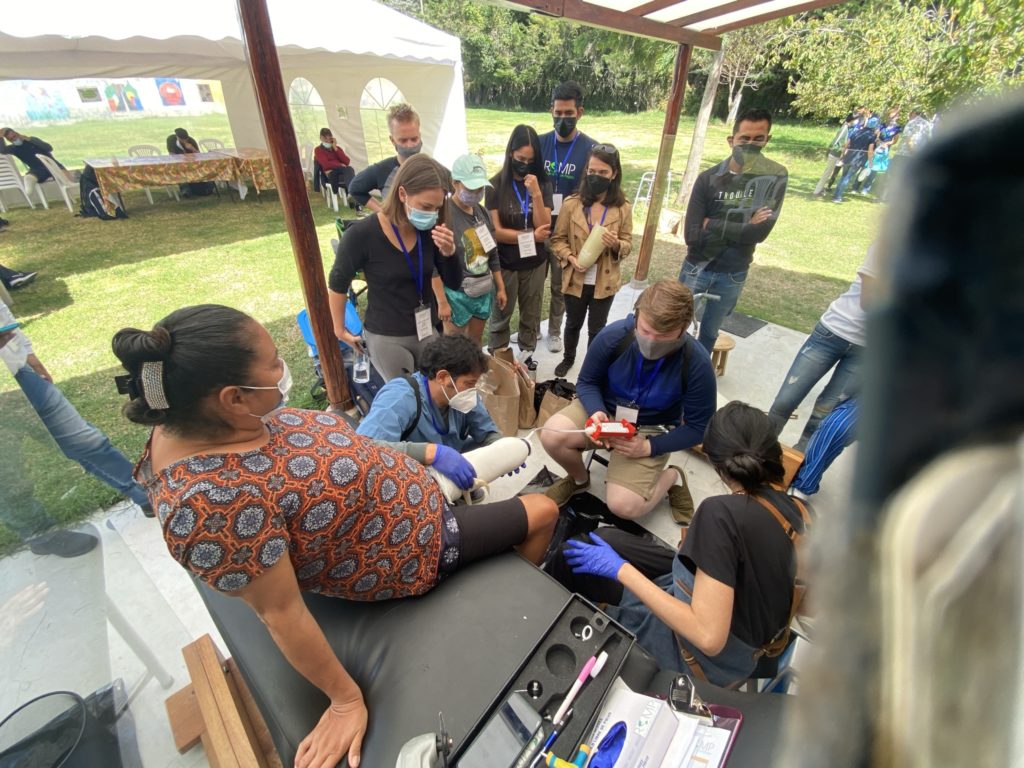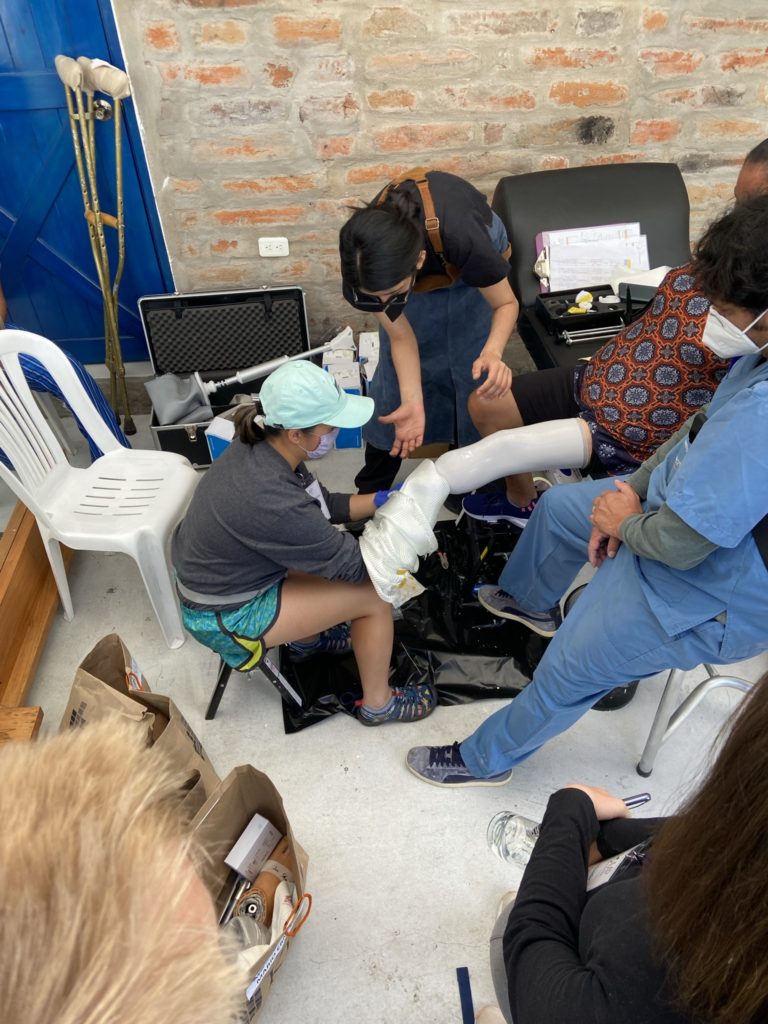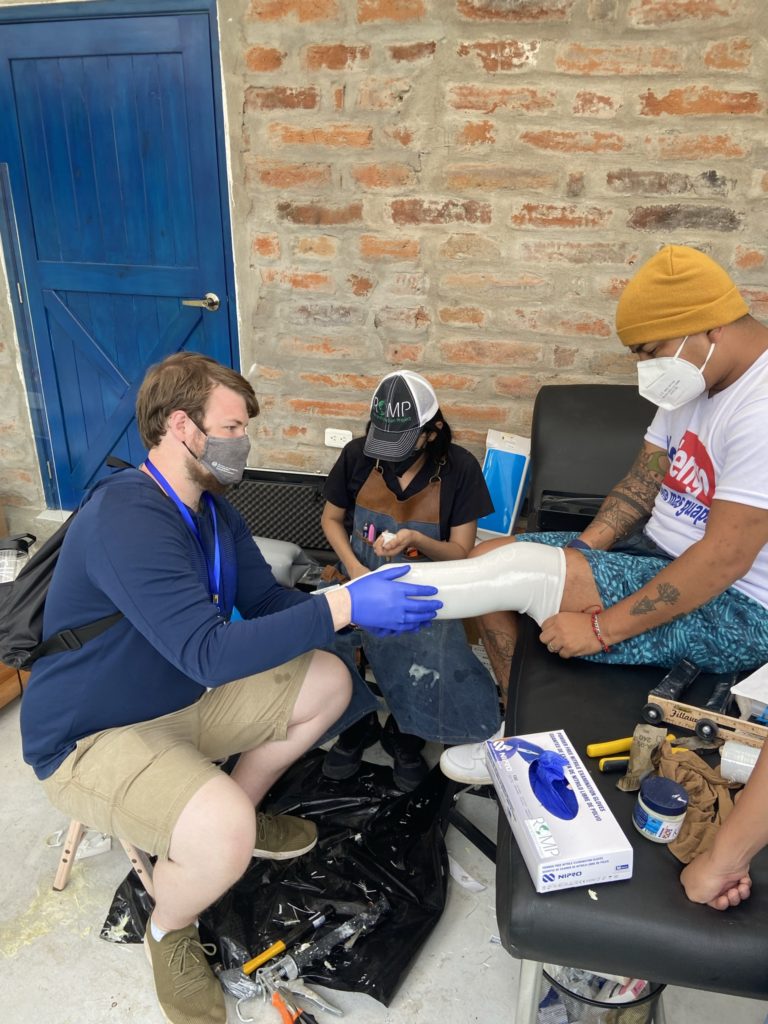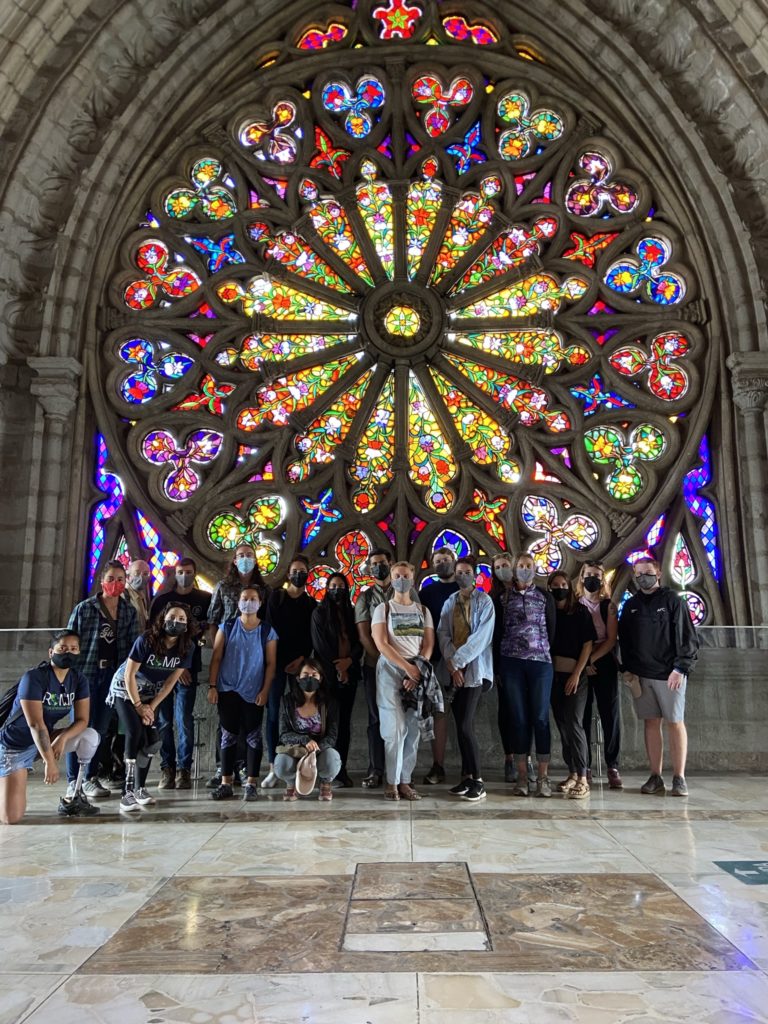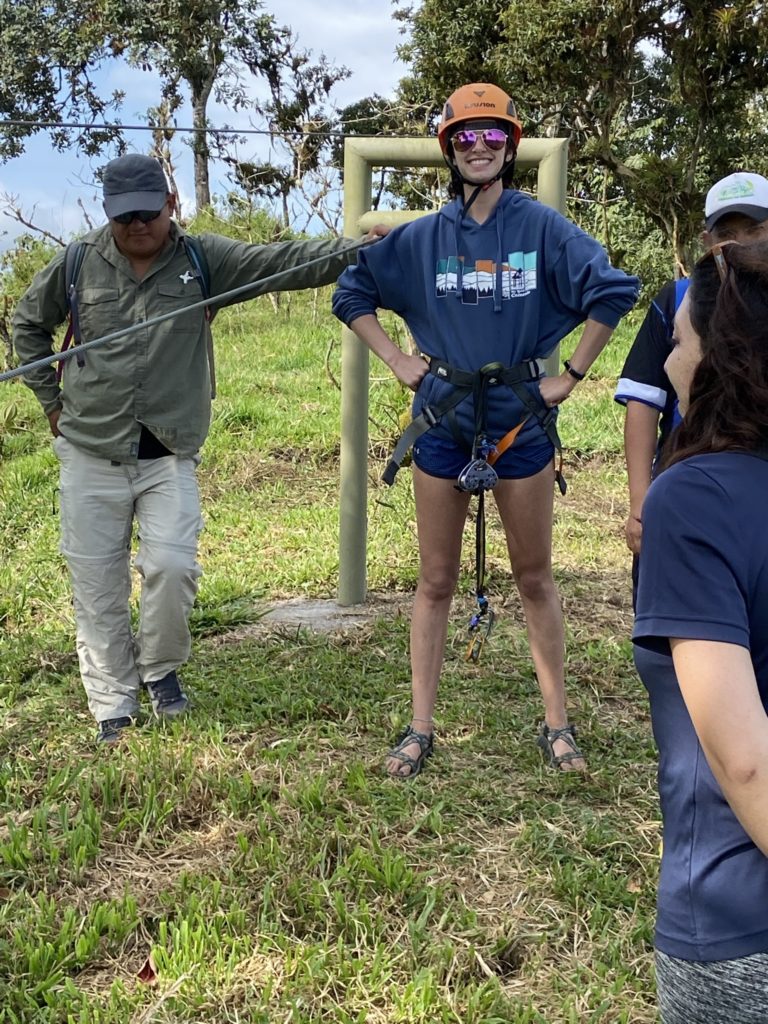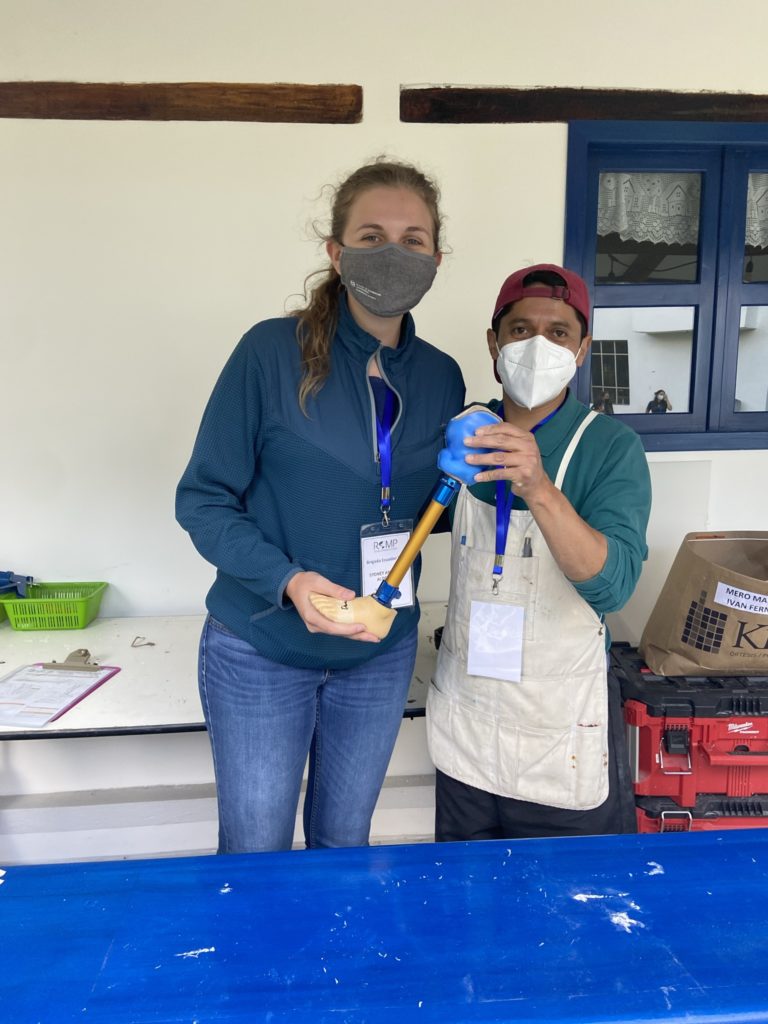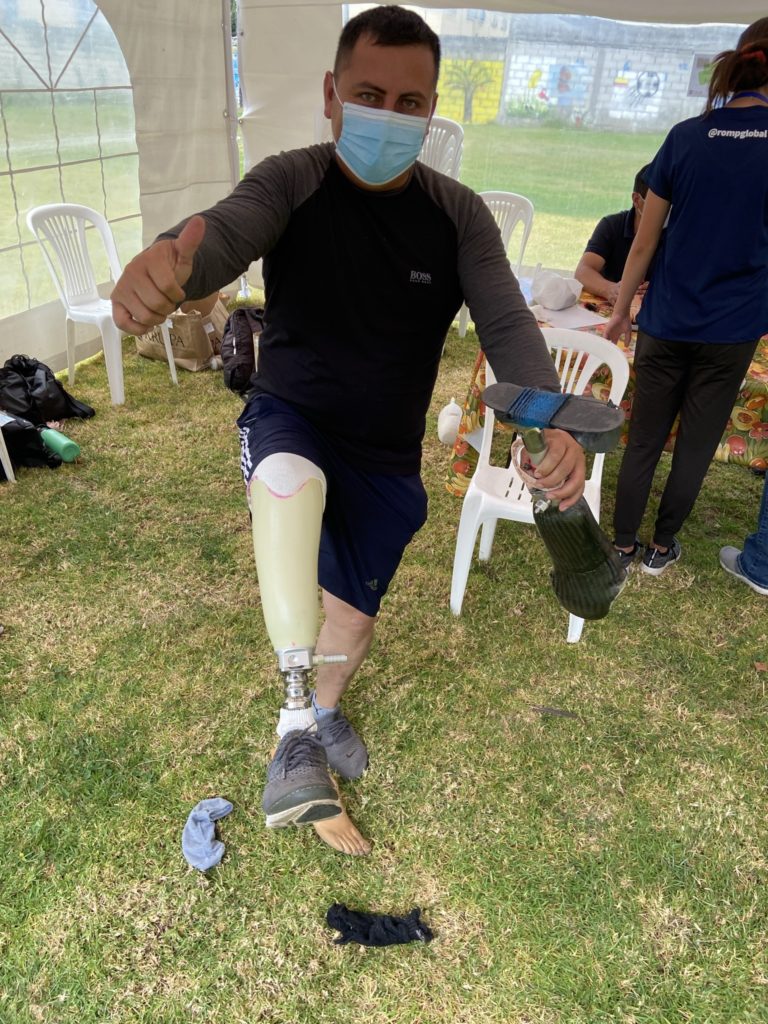Delayed but not stopped:
CSU students transform lives of amputees in Ecuador
by Russell Dickerson, December 8, 2021
Even a pandemic couldn’t stop Colorado State University students from helping the global community. It only delayed their efforts.
In 2018 and 2019, CSU students and staff worked in a clinic in Quito, Ecuador, helping to build and fit prosthetic devices for limited income amputees. The pandemic put plans on hold for the 2020 collaboration with the Range of Motion Project (ROMP) in Ecuador.
In August 2021, 14 students and two staff journeyed to Ecuador to continue where the important program left off. Despite the pandemic, participants transformed lives, helping amputees walk again.
“Sixteen people walked again within the span of the week,” said Brett Beal, Manager of Undergraduate Programs for the School of Biomedical Engineering and trip co-lead. “That’s pretty life-changing.”
A new and novel experience studying abroad
As with many Study Abroad experiences, some students hadn’t previously traveled to a different country. For Roberto Ortega, a biomedical and mechanical engineering student, his first time on a plane was less than a year ago. CSU’s Global Access Award Education Abroad Scholarship helped him join the program and added a new chapter to his experiences.
“A scholarship like this enabled me to go, I would not be able to go without it,” said Ortega. “It helps me solidify what I want to do in life.”
Flying to Ecuador and communicating with the people there was both exciting and terrifying for Ortega. Having pandemic protocols in place and guidance from staff and ROMP helped. He found he was able to stay safe, have fun, and make a real difference in someone’s life.
“I can see that the volunteers, prosthetists, and ROMP make such meaningful contributions to society, allowing people to have hope, stand up every day, and walk on their own again,” he said. “Every person deserves the opportunity for mobility.”
Pandemic precautions and safety for both countries
The strict COVID-19 precautions in Quito allowed the group — and the patients — to stay safe and have a meaningful experience.
“It’s hard for me to say how the trip might be different without the pandemic,” said Sydney Alderfer, a student in biomedical and chemical and biological engineering, before leaving on the trip. “I think we are all approaching the trip with as much flexibility as possible.”
Participants were tested for COVID-19 both before and after the trip. Participants and amputees also followed the strict pandemic protocols in Quito. Masks were worn everywhere, visitors to local establishments were given a mandatory spray of hand sanitizer, and participants practiced social distancing when not working with patients.
Changes to the experience
The group worked at an outdoor ‘pop-up clinic,’ developed this year when the regular indoor clinic was not available. Participants found the open-air environment in the beautiful hacienda inspiring. ROMP is currently using this experience as a model to bring pop-up clinics to rural areas in Ecuador in the future.
Instead of traveling for a cultural immersion weekend as in previous years, sightseeing opportunities involved day-trips in and around Quito. After-hour social elements were also fairly non-existent.
“After 14-hour days at the clinic,” Beal joked, “I’m not sure most of the students had a lot of energy to go out and about much anyway!”
CSU’s Todos Santos a new addition to the experience
After each previous trip, SBME staff asked participants what they would change about the experience.
“Every single attendee I talked to said that they wished they had known more Spanish,” said Beal. “So I reached out to Olaf Morales to see if we could create a Spanish learning opportunity prior to this trip.”
Morales, Language Coordinator for the CSU Todos Santos Center in Baja California Sur, Mexico, offered a virtual 4-week Spanish language tutorial for participants to take the month before departure. Along with basic letters, numbers, and nouns, the course covered some anatomical and technical terms in Spanish.
For Ortega, the course clarified the Spanish he’s always spoken. Learning technical and medical terms helped him work directly with patients.
“Being Mexican American, I’ve spoken Spanish pretty much my whole life. But I only speak it to my family so I never learned proper Spanish,” said Ortega. “I will say it’s been pretty helpful, I feel I can comfort patients or let them know everything that’s going to happen.”
Overcoming challenges to improve lives
Students were inspired by the effect the program will have on their careers and lives.
In less than a week, students assisted prosthetists in creating and fitting below-knee prosthetics for 16 people. All were able to walk on their new prosthetic devices after the volunteer effort.
“Our students improved the quality of peoples’ lives and had an amazing cultural experience,” said Beal. “I know of one student who wants to go back and volunteer all of next summer.”
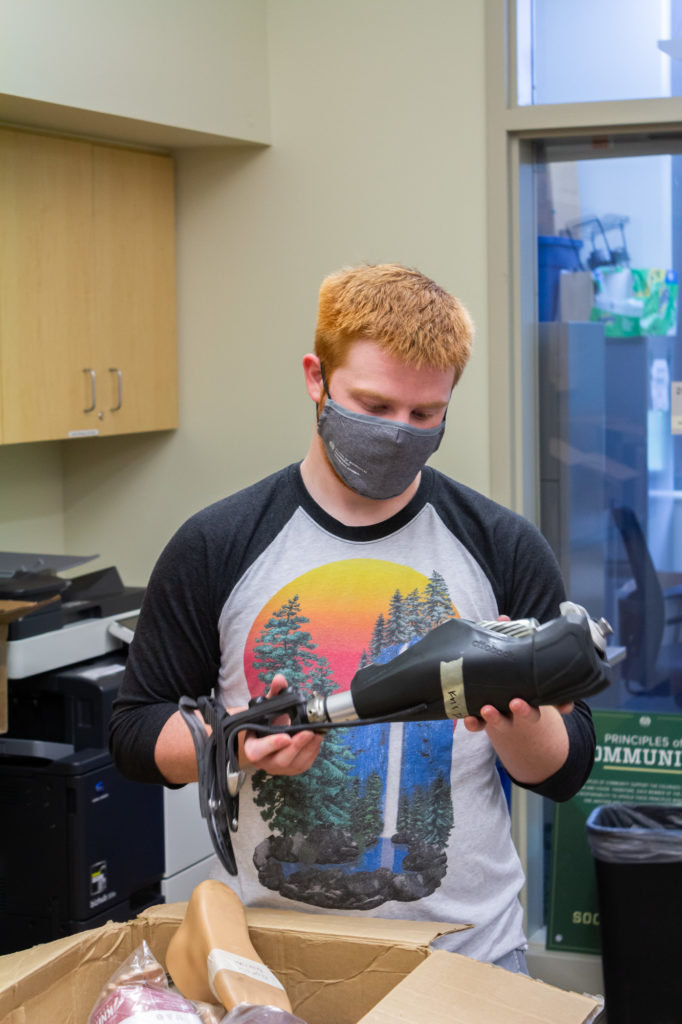
Innovation and collaboration taking many forms
While students on the trip helped engineer and manufacture prosthetic devices at the clinic in Ecuador, they also assisted on the way there. Students packed extra prosthetic components in their luggage on the trip down, including prosthetic feet and components.
New to ROMP, some components were Direct Socket technology. “Direct Socket technology directly forms a socket around the patient’s residual limb without requiring any plaster molding or handling of hot plastic,” said Kevin Lear, trip co-lead and professor in Biomedical Engineering and Electrical and Computer Engineering. “The direct resin socket can be made in less than an hour, instead of the many hours required for the traditional plaster socket.”
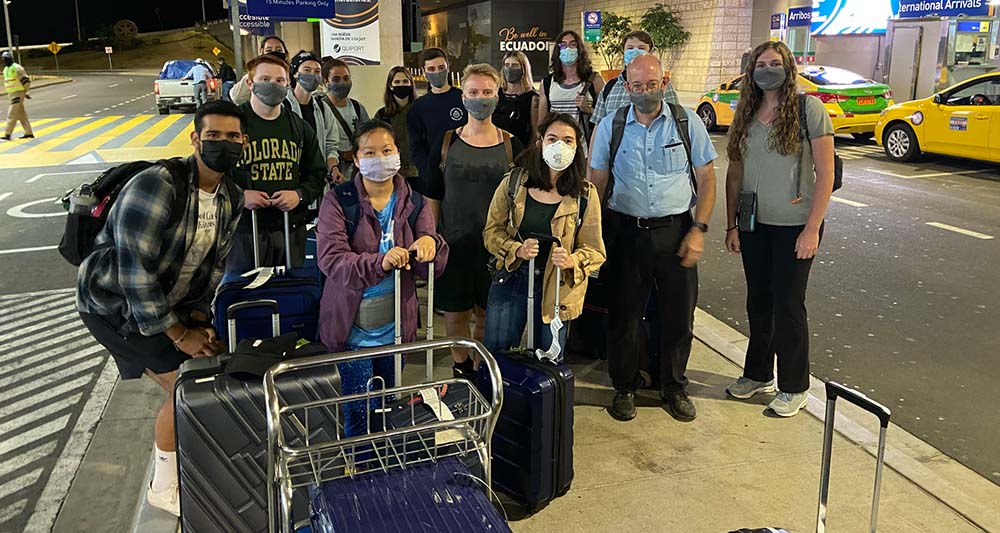
2021 participants
Staff
- Kevin Lear, Professor, Biomedical Engineering and Electrical and Computer Engineering
- Brett Beal, Manager of Undergraduate Programs for the School of Biomedical Engineering
Students
- Matt Ahern, BME+MECH
- Sydney Alderfer, BME+CBE/Leadership minor
- Mykala Coe, BME+MECH
- Becky Coonen, BME+MECH
- Jarrett Deichman, Neuroscience
- Katie Evans, BME+MECH
- Dillon Fiore, BME+MECH
- Bailee Jones, BME+MECH
- Katie Leonard, HES/BME minor
- Emily Macqueene, MECH/French/BME minor
- Adam McAuliffe, BME+MECH
- Roberto Ortega, BME+MECH
- Taylor Recaido, BME+MECH
- Kalaina Stroyan, BME+MECH
Top of page photo: ROMP, CSU participants, and amputees pose for a group photo.
